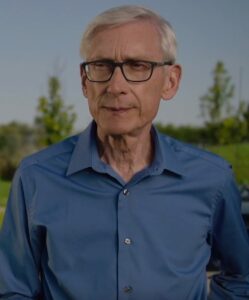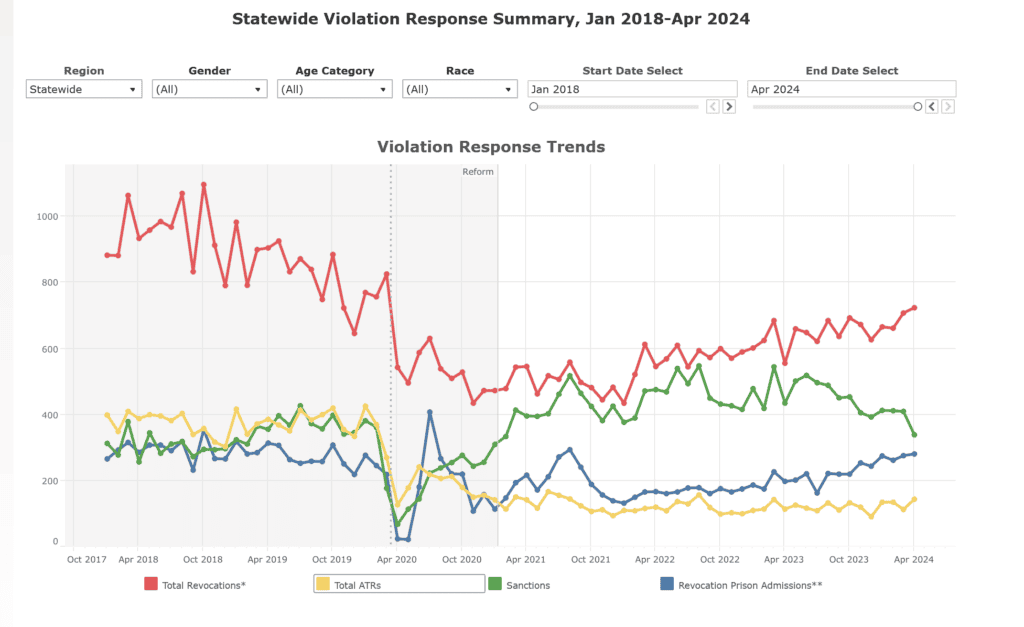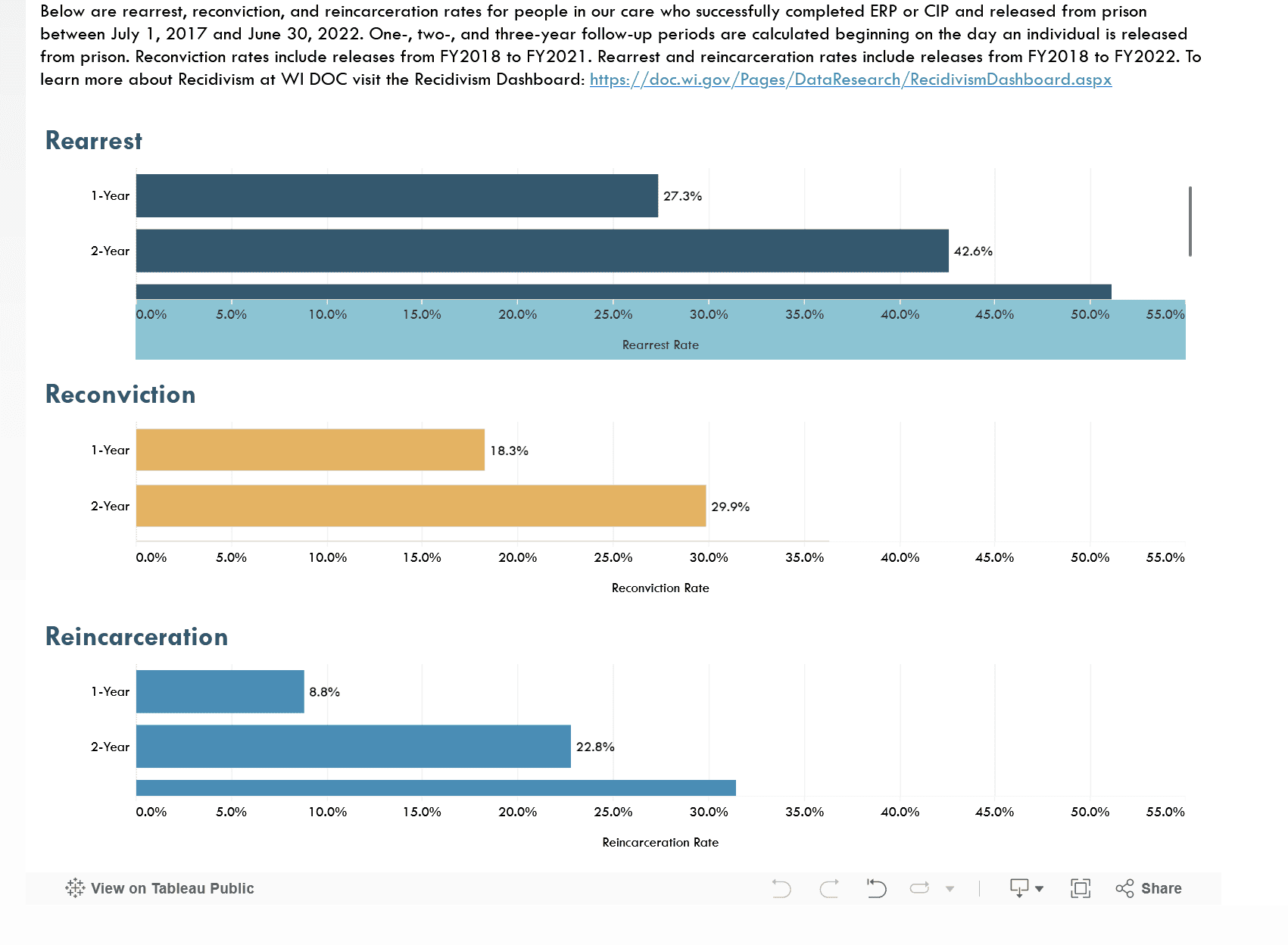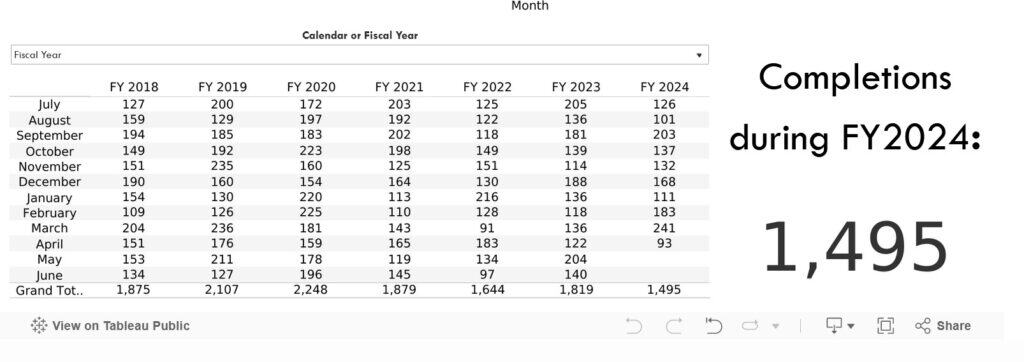 This is story 1 in WRN's 7-part series on the Waukesha County District Attorney's race, based on the recent DA debate sponsored by the Republican Party of Waukesha County.
This is story 1 in WRN's 7-part series on the Waukesha County District Attorney's race, based on the recent DA debate sponsored by the Republican Party of Waukesha County.
The two candidates for Waukesha County district attorney slammed the soft-on-crime philosophy under Democratic Gov. Tony Evers, saying it is imperiling safety in the county.
Evers' weak approach to crimefighting and the damage it's doing to Waukesha County and the rest of the state was one area that Lesli Boese and Michael Thurston, both deputy DAs in the office, agree on. Both are career prosecutors who are running as Republicans in the Aug. 13 primary to replace retiring DA Susan Opper. They spoke at an often contentious June 19 debate. The debate, the first in the race and perhaps the only, was sponsored by the Republican Party of Waukesha County.
Thurston slammed the lack of revocation for people on probation and parole who commit new crimes; Boese slammed Evers' early release stances.
https://youtu.be/d8Dy_6gnkoI?si=eThurfov111qbnxS
More than 11,000 inmates have completed early release programming (earned release/challenge incarceration) since Gov. Evers took office,
according to the state Department of Corrections' data. When he first ran for office,
Evers promised to reduce the prison population by half.
The Department of Corrections used Wisconsin Court System Circuit Court Access data for 2019 and estimated that 6,280 offenders on community supervision were charged with a new crime and remained on community supervision instead of being revoked,
according to a fiscal note released in 2021. That's the year Evers took office.
[caption id="attachment_13053" align="alignnone" width="249"]

Tony Evers[/caption]
"I think it's our governor. I think you have a Democrat governor who is soft on crime and who wants to give people chance after chance and to no good," Boese said. "We keep seeing those same people reoffending and reoffending, and people wonder why recidivism is up - because there is no accountability."
Thurston chastised the Department of Corrections under Evers' authority, saying that offenders who commit new crimes while under probation and parole supervision are sometimes not revoked by DOC.
"We have a problem with probation and parole right now," Thurston said. "They're not revoking enough defendants."
Revocations have declined since 2017, according to DOC's revocations dashboard.
[caption id="attachment_207532" align="alignnone" width="1024"]

DOC dashboard on revocations[/caption]
He said it was "staggering that you can commit new crimes on supervision and not be revoked." Thurston called that fact "outrageous" and said it needs to be strengthened. Boese agreed with Thurston that the lack of probation and parole revocations is a problem.
Boese said that truth-in-sentencing needs to be restored, saying, "When I first started, 10 years meant 10 years, 20 years meant 20 years. That’s gone."
She criticized "all this prison programming that they're just expanding under Gov. Evers, that people can get out early."
Boese said she recently prosecuted a defendant who received a six-year prison sentence "who I think will be out in under a year. That's wrong, and we need to change it."
State data shows that more than 42% of those released early under Evers' earned release or challenge incarceration programs are arrested again within two years.

Here are the state's earned release and challenge incarceration numbers, with the left column starting with fiscal year 2018.

1,495 inmates have completed the programming to be released early in fiscal year 2024, DOC says.

Evers took office on January 7, 2019. The DOC dashboards only go back to fiscal year 2018. More than 11,000 inmates have completed the early release programming since Gov. Evers took office, according to the above chart on the DOC website.
The DOC website says the programs address “criminal thinking and substance use disorders” and that statutes allow judges to sentence “non-violent, non-assaultive individuals with substance use treatment needs to this full-time intensive program designed to reduce the incidence of future criminal behaviors.”
Despite the involvement of judges, we previously reported that Gov. Tony Evers’ administration expanded the state’s earned release program in multiple ways. We found criminals who were paroled, court records say through earned release, despite committing offenses the public would consider violent, such as battery and recklessly endangering safety.
We also found armed robbers, felons in possession of a firearm, and people with past violent records or violent charges in the same case, even habitual criminals with lengthy records. Multiple criminals were released even though they had already failed earned release or had their probation/parole revoked, sometimes in the same case. Some are now sex offenders.
The governor’s Department of Corrections –
run by an Evers’ cabinet appointee –
has discretion over deciding inmates’ “suitability” for earned release, after judges or Corrections determine “eligibility” depending on the date of the crime. In some cases, inmates need the department’s approval to ask a judge for eligibility.
Evers’ Department of Corrections “determines the inmate is suitable for the program” based on factors such as vague things like “inmate needs” and “department resources” and department policy. Corrections, which falls under Evers’ authority, loosened the guidelines to allow more criminals into the program.
Evers' DOC has melted down in other ways, including severe staffing shortages and
criminal charges against nine correctional officers and a warden relating to inmate deaths and alleged mistreatment.
https://www.wisconsinrightnow.com/waukesha-county-da-candidates-michael-thurston-lesli-boese/?feed_id=16794&_unique_id=6676af74afd04
 This is story 1 in WRN's 7-part series on the Waukesha County District Attorney's race, based on the recent DA debate sponsored by the Republican Party of Waukesha County.
The two candidates for Waukesha County district attorney slammed the soft-on-crime philosophy under Democratic Gov. Tony Evers, saying it is imperiling safety in the county.
Evers' weak approach to crimefighting and the damage it's doing to Waukesha County and the rest of the state was one area that Lesli Boese and Michael Thurston, both deputy DAs in the office, agree on. Both are career prosecutors who are running as Republicans in the Aug. 13 primary to replace retiring DA Susan Opper. They spoke at an often contentious June 19 debate. The debate, the first in the race and perhaps the only, was sponsored by the Republican Party of Waukesha County.
Thurston slammed the lack of revocation for people on probation and parole who commit new crimes; Boese slammed Evers' early release stances.
https://youtu.be/d8Dy_6gnkoI?si=eThurfov111qbnxS
More than 11,000 inmates have completed early release programming (earned release/challenge incarceration) since Gov. Evers took office, according to the state Department of Corrections' data. When he first ran for office, Evers promised to reduce the prison population by half.
The Department of Corrections used Wisconsin Court System Circuit Court Access data for 2019 and estimated that 6,280 offenders on community supervision were charged with a new crime and remained on community supervision instead of being revoked, according to a fiscal note released in 2021. That's the year Evers took office.
[caption id="attachment_13053" align="alignnone" width="249"]
This is story 1 in WRN's 7-part series on the Waukesha County District Attorney's race, based on the recent DA debate sponsored by the Republican Party of Waukesha County.
The two candidates for Waukesha County district attorney slammed the soft-on-crime philosophy under Democratic Gov. Tony Evers, saying it is imperiling safety in the county.
Evers' weak approach to crimefighting and the damage it's doing to Waukesha County and the rest of the state was one area that Lesli Boese and Michael Thurston, both deputy DAs in the office, agree on. Both are career prosecutors who are running as Republicans in the Aug. 13 primary to replace retiring DA Susan Opper. They spoke at an often contentious June 19 debate. The debate, the first in the race and perhaps the only, was sponsored by the Republican Party of Waukesha County.
Thurston slammed the lack of revocation for people on probation and parole who commit new crimes; Boese slammed Evers' early release stances.
https://youtu.be/d8Dy_6gnkoI?si=eThurfov111qbnxS
More than 11,000 inmates have completed early release programming (earned release/challenge incarceration) since Gov. Evers took office, according to the state Department of Corrections' data. When he first ran for office, Evers promised to reduce the prison population by half.
The Department of Corrections used Wisconsin Court System Circuit Court Access data for 2019 and estimated that 6,280 offenders on community supervision were charged with a new crime and remained on community supervision instead of being revoked, according to a fiscal note released in 2021. That's the year Evers took office.
[caption id="attachment_13053" align="alignnone" width="249"] Tony Evers[/caption]
"I think it's our governor. I think you have a Democrat governor who is soft on crime and who wants to give people chance after chance and to no good," Boese said. "We keep seeing those same people reoffending and reoffending, and people wonder why recidivism is up - because there is no accountability."
Thurston chastised the Department of Corrections under Evers' authority, saying that offenders who commit new crimes while under probation and parole supervision are sometimes not revoked by DOC.
"We have a problem with probation and parole right now," Thurston said. "They're not revoking enough defendants."
Revocations have declined since 2017, according to DOC's revocations dashboard.
[caption id="attachment_207532" align="alignnone" width="1024"]
Tony Evers[/caption]
"I think it's our governor. I think you have a Democrat governor who is soft on crime and who wants to give people chance after chance and to no good," Boese said. "We keep seeing those same people reoffending and reoffending, and people wonder why recidivism is up - because there is no accountability."
Thurston chastised the Department of Corrections under Evers' authority, saying that offenders who commit new crimes while under probation and parole supervision are sometimes not revoked by DOC.
"We have a problem with probation and parole right now," Thurston said. "They're not revoking enough defendants."
Revocations have declined since 2017, according to DOC's revocations dashboard.
[caption id="attachment_207532" align="alignnone" width="1024"] DOC dashboard on revocations[/caption]
He said it was "staggering that you can commit new crimes on supervision and not be revoked." Thurston called that fact "outrageous" and said it needs to be strengthened. Boese agreed with Thurston that the lack of probation and parole revocations is a problem.
Boese said that truth-in-sentencing needs to be restored, saying, "When I first started, 10 years meant 10 years, 20 years meant 20 years. That’s gone."
She criticized "all this prison programming that they're just expanding under Gov. Evers, that people can get out early."
Boese said she recently prosecuted a defendant who received a six-year prison sentence "who I think will be out in under a year. That's wrong, and we need to change it."
State data shows that more than 42% of those released early under Evers' earned release or challenge incarceration programs are arrested again within two years.
DOC dashboard on revocations[/caption]
He said it was "staggering that you can commit new crimes on supervision and not be revoked." Thurston called that fact "outrageous" and said it needs to be strengthened. Boese agreed with Thurston that the lack of probation and parole revocations is a problem.
Boese said that truth-in-sentencing needs to be restored, saying, "When I first started, 10 years meant 10 years, 20 years meant 20 years. That’s gone."
She criticized "all this prison programming that they're just expanding under Gov. Evers, that people can get out early."
Boese said she recently prosecuted a defendant who received a six-year prison sentence "who I think will be out in under a year. That's wrong, and we need to change it."
State data shows that more than 42% of those released early under Evers' earned release or challenge incarceration programs are arrested again within two years.
 Here are the state's earned release and challenge incarceration numbers, with the left column starting with fiscal year 2018.
Here are the state's earned release and challenge incarceration numbers, with the left column starting with fiscal year 2018.
 1,495 inmates have completed the programming to be released early in fiscal year 2024, DOC says.
1,495 inmates have completed the programming to be released early in fiscal year 2024, DOC says.
 Evers took office on January 7, 2019. The DOC dashboards only go back to fiscal year 2018. More than 11,000 inmates have completed the early release programming since Gov. Evers took office, according to the above chart on the DOC website.
The DOC website says the programs address “criminal thinking and substance use disorders” and that statutes allow judges to sentence “non-violent, non-assaultive individuals with substance use treatment needs to this full-time intensive program designed to reduce the incidence of future criminal behaviors.”
Despite the involvement of judges, we previously reported that Gov. Tony Evers’ administration expanded the state’s earned release program in multiple ways. We found criminals who were paroled, court records say through earned release, despite committing offenses the public would consider violent, such as battery and recklessly endangering safety.
We also found armed robbers, felons in possession of a firearm, and people with past violent records or violent charges in the same case, even habitual criminals with lengthy records. Multiple criminals were released even though they had already failed earned release or had their probation/parole revoked, sometimes in the same case. Some are now sex offenders.
The governor’s Department of Corrections – run by an Evers’ cabinet appointee – has discretion over deciding inmates’ “suitability” for earned release, after judges or Corrections determine “eligibility” depending on the date of the crime. In some cases, inmates need the department’s approval to ask a judge for eligibility.
Evers’ Department of Corrections “determines the inmate is suitable for the program” based on factors such as vague things like “inmate needs” and “department resources” and department policy. Corrections, which falls under Evers’ authority, loosened the guidelines to allow more criminals into the program.
Evers' DOC has melted down in other ways, including severe staffing shortages and criminal charges against nine correctional officers and a warden relating to inmate deaths and alleged mistreatment.
https://www.wisconsinrightnow.com/waukesha-county-da-candidates-michael-thurston-lesli-boese/?feed_id=16794&_unique_id=6676af74afd04
Evers took office on January 7, 2019. The DOC dashboards only go back to fiscal year 2018. More than 11,000 inmates have completed the early release programming since Gov. Evers took office, according to the above chart on the DOC website.
The DOC website says the programs address “criminal thinking and substance use disorders” and that statutes allow judges to sentence “non-violent, non-assaultive individuals with substance use treatment needs to this full-time intensive program designed to reduce the incidence of future criminal behaviors.”
Despite the involvement of judges, we previously reported that Gov. Tony Evers’ administration expanded the state’s earned release program in multiple ways. We found criminals who were paroled, court records say through earned release, despite committing offenses the public would consider violent, such as battery and recklessly endangering safety.
We also found armed robbers, felons in possession of a firearm, and people with past violent records or violent charges in the same case, even habitual criminals with lengthy records. Multiple criminals were released even though they had already failed earned release or had their probation/parole revoked, sometimes in the same case. Some are now sex offenders.
The governor’s Department of Corrections – run by an Evers’ cabinet appointee – has discretion over deciding inmates’ “suitability” for earned release, after judges or Corrections determine “eligibility” depending on the date of the crime. In some cases, inmates need the department’s approval to ask a judge for eligibility.
Evers’ Department of Corrections “determines the inmate is suitable for the program” based on factors such as vague things like “inmate needs” and “department resources” and department policy. Corrections, which falls under Evers’ authority, loosened the guidelines to allow more criminals into the program.
Evers' DOC has melted down in other ways, including severe staffing shortages and criminal charges against nine correctional officers and a warden relating to inmate deaths and alleged mistreatment.
https://www.wisconsinrightnow.com/waukesha-county-da-candidates-michael-thurston-lesli-boese/?feed_id=16794&_unique_id=6676af74afd04
Comments
Post a Comment